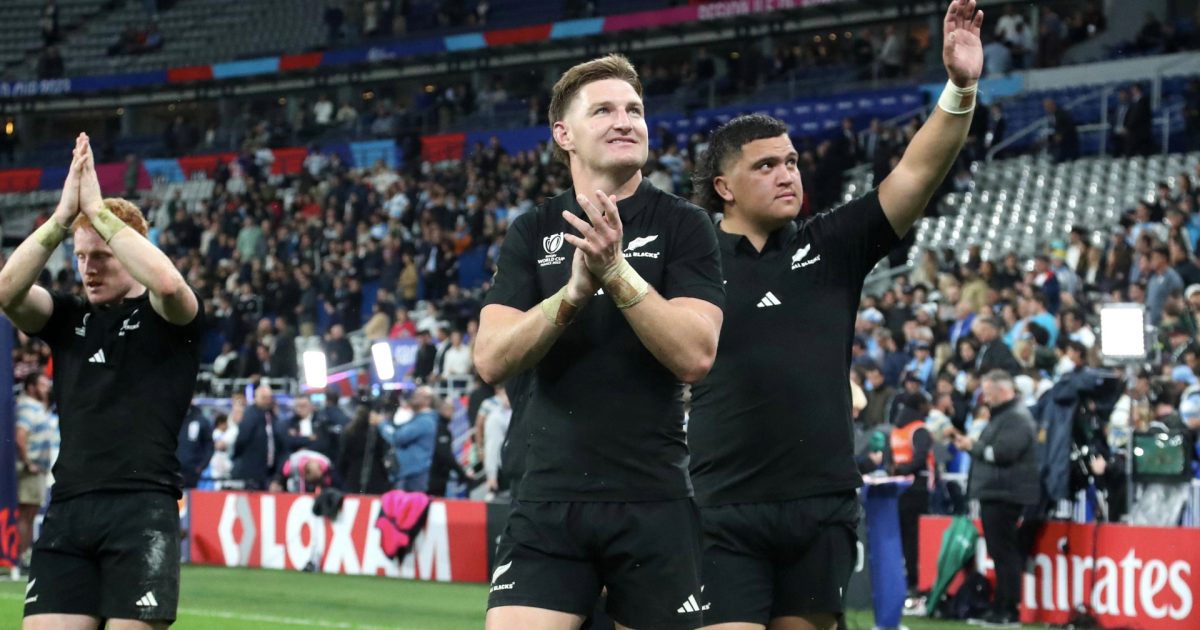All Blacks coach praises Jordie Barrett's defensive ‘difference’

It’s hard to believe that Jordie Barrett wasn’t an inside centre at Test level 14 months ago. Barrett donned the No. 12 jersey for the first time last September and hasn’t looked back.
Less than a week out from the Rugby World Cup final, Barrett appears to be the glue to the All Blacks’ defensive structures. Barrett holds the key to success for the New Zealanders.
Lining up in a familiar-looking midfield combination alongside Rieko Ioane, Barrett was defensively superb during the All Blacks’ semi-final triumph over Rugby Championship rivals Los Pumas.
Barrett attempted an incredible 22 tackles during the 44-6 rout of Argentina. The utility’s effort was slightly better than the All Blacks’ next best in Shannon Frizell who attempted 20 stops.
While wing Will Jordan crossed for an eye-catching hat-trick, there were no arguments with Jordie Barrett receiving Player of the Match honours after a commanding semi-final victory.
“He got player of the match the other day [against Argentina]. He was massive in defence, he attempted the most tackles. But the most pleasing thing for me was he actually applied pressure,” assistant coach Scott McLeod said on Monday.
“Against Ireland, we were probably holding a bit and trying not to show any space in our line, whereas against Argentina when the opportunity arose he went out and pressured it.
“He saw the pictures a lot earlier, he backed himself to go and do it and those around him supported that and he made quite a difference for us.”
While Barrett left Stade de France with an individual accolade after the Test on Friday night, his defensive effort was a reflection of the progress that the entire team has made.
The All Blacks have made more than 420 tackles in just two matches against Ireland and Los Pumas, which has been the not-so-secret to their success.
“When we look at last year in particular, where and how we got beaten, we were tending to [use a] ‘defend the man’ system. Ireland were too good last year in being able to put the ball into spaces and play through us,” McLeod mentioned.
“A lot of that is coached in Super Rugby in New Zealand and I do know that northern hemisphere sides in particular will target Kiwis who play up here because they know they are going to be man-focused rather than ball-focused, so we had to shift our skillset in the way we looked at things as defenders.
“So we planted the seed earlier this year with the leaders, got them to work right through the Super and then it got tested early on – throughout all the games we have been tested quite thoroughly on that. However, when the push came to shove, particularly with Ireland who were going to test us the most, it stood up and that was really pleasing.
“It’s relevant against the South African boys. You don’t need to make as many decisions on the ball but you still need to be able to see where the ball is going and watch the influence on the bodies in front of them. That has probably been the biggest shift for us and we will see if it can hold up again.”






























































































